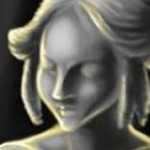
Revisit True Detective one last time, armed with Dante and prepared to find heaven and hell.
In the middle of the journey of their lives, two men find themselves in a cane field, where the straight way is lost. One is prone to oracular statements; the other is dealing with the ramifications of his attraction to younger women. They travel to unexpected places, some spiraling deep underground, and learn just how much evil humanity can create and allow to fester. By the end, they come to a greater understanding of each other and the power of redemption.
This is not to say that Dante Alighieri’s Divine Comedy holds all the keys to understanding True Detective; for one, it wasn’t all that hard to understand in the end, and for another, the time for that sort of wild-eyed pronouncement was three long weeks ago. Rather, both the epic poem and the television show are ultimately about how we sin and how we get saved. Dante organized both his Inferno and Purgatorio by categories of sin, which seems redundant until you realize that it’s one of the most important aspects of the whole epic poem. Hell is for the unrepentant; Purgatory is for sinners who are willing to be redeemed by suffering. Within each, souls exist in circles and terraces specific to their most important crimes against humanity and God.
Initially, Rust and Marty’s primary sins are pride and lust, respectively, which are also Dante’s big two. (Wrath is up there as well.) While Rust doesn’t much acknowledge his shortcomings, Marty categorizes himself in 2012 as a sinner of inattention. It isn’t one of the Seven Deadly Sins, but it underlies several of them; more important, his admission is the first step towards redemption.
For the unredeemable in both the poem and the show, the worst sins are those of treachery and betrayal:
Treachery Against Family

Treachery Against the State

Treachery Against God

While Dante’s entire medieval Catholic concept of sin hinges on individual free will, True Detective’s is a murkier, more complicated notion that “sort of pump[s] into a much larger system,” as director Cary Fukunaga put it in a recent interview. People may “always have a choice,” as Rust says in the final episode, but those choices are shaped by structures that may be invisible to them. The bad men who keep other bad men from the door are part of those structures as well, and it isn’t always as simple as doing what’s right or virtuous. Reggie Ledoux deserved to have his head blown half off, even if it did complicate the case something awful, and Joel Theriot tried to do what was right regarding those pictures but may have just driven the Tuttles into further secrecy. While Dante has faith that the problem with human structures—the Church, Florentine politics, and families—can be addressed by purging them of their sinful elements, Rust and Marty are some of those sinful elements.
Unlike most other detectives in crime fiction, they redeem themselves not by solving the crime and making up for their previous shortcomings with loved ones by proxy (hi, Mikael Blomkvist!) but by their actions along the way. Both Marty and Rust have learned by increasingly painful experience that they cannot go it alone. In life and in detective work, they need one another, as partners and friends. Granted, it took them seventeen years to figure it out, but given that a medieval Spanish theologian once calculated the average stay in Purgatory to be a thousand to two thousand years, they aren’t doing so badly overall.

“…the one supported the other with his shoulder,” Purgatorio, Canto XIII, line 59
But as with Dante’s repentant sinners in Purgatory, there are sacrifices that must be made. Marty may be reconciled with his family, but Mr. Sawyer still dropped them off at his hospital door, and goddamn but that’s a big rock Maggie’s sporting there. (One last wedding ring shot! Dreadful shortage of dick references, though.) Rust has poured fifteen years of his life, what little sobriety he may have ever had, and nearly all of the blood in his body into this case, but his father and daughter are still dead. Despite all my snarking at the midpoint of the show, he has indeed reintegrated into domesticity, but only through a near-death experience. He hasn’t found God—this is a determinedly realistic show, despite all the occult hints that got the Internet going like Beth on bourbon at the Fox and Hound—but he has done something almost as unbelievable: remembered what it was to love. The potential for sappiness was vast, as even this unsentimental empiricist would ordinarily be more likely to interpret Rust’s epiphany as boring ol’ hypoxia. Nevertheless, I bought it because Rust did (and because McConaughey sold it so perfectly)

“As a cross-bow shot with too great a strain breaks the cord and bow and the shaft touches the mark with less force, so I broke down under that heavy charge, pouring forth tears and sighs, and my voice failed in its passage,” Purgatorio, Canto XXXI, lines 16-21
An essential part of Dante’s concept of salvation is that it can come through earthly love and passion, which has the unfortunate side effect of turning his muse Beatrice into a woman who exists solely to improve the life of a man, either as an artistic inspiration or as a heavenly travel guide. Plenty of critics complained about True Detective doing something similar with wives, daughters, and murder victims, but the finale provided an unexpected angle. Rust found not only his daughter Sophia in that warm place, but his father as well. Given all the show’s pointed criticisms of failed fatherhood and Rust’s own earlier comments about the two of them “not really liking each other,” the notion that his pop would be a source of reassurance and comfort was at least as much of a twist as, say, Audrey being the Yellow King.
In the end, both the Divine Comedy and True Detective are getting at the same basic truth, which is that the only way to combat the darkness within ourselves is to form connections with one another. It may not be as exciting as analyzing the depravity that human beings are capable of, which is why everyone reads the Inferno and hardly anyone gets through the Paradiso (well, that and medieval religious philosophy about virtue doesn’t age very well). It may not be the real reason why people pay for premium cable, either. But it’s true, and it’s been true for seven hundred years and more, and it’s at the core of some of humanity’s greatest art.
Oh, yeah, and the last word in each of the three parts of the Divine Comedy? “Stelle,” or “stars.”

[Ed. Note—All Dante quotes are from the John D. Sinclair translation.]
La Donna Pietra (@ladonnapietra) is a Duke City denizen with opinions about pop culture, gender, and ice cream.
RELATED: Pictures of You: True Detective and the Dilemma of the Dead Woman's Photo
RELATED: Doing the Job: How True Detective Is Screwing With Buddy Cop Cliches
RELATED: Dick Measuring Contest: Talking About the Season Finale of True Detective

